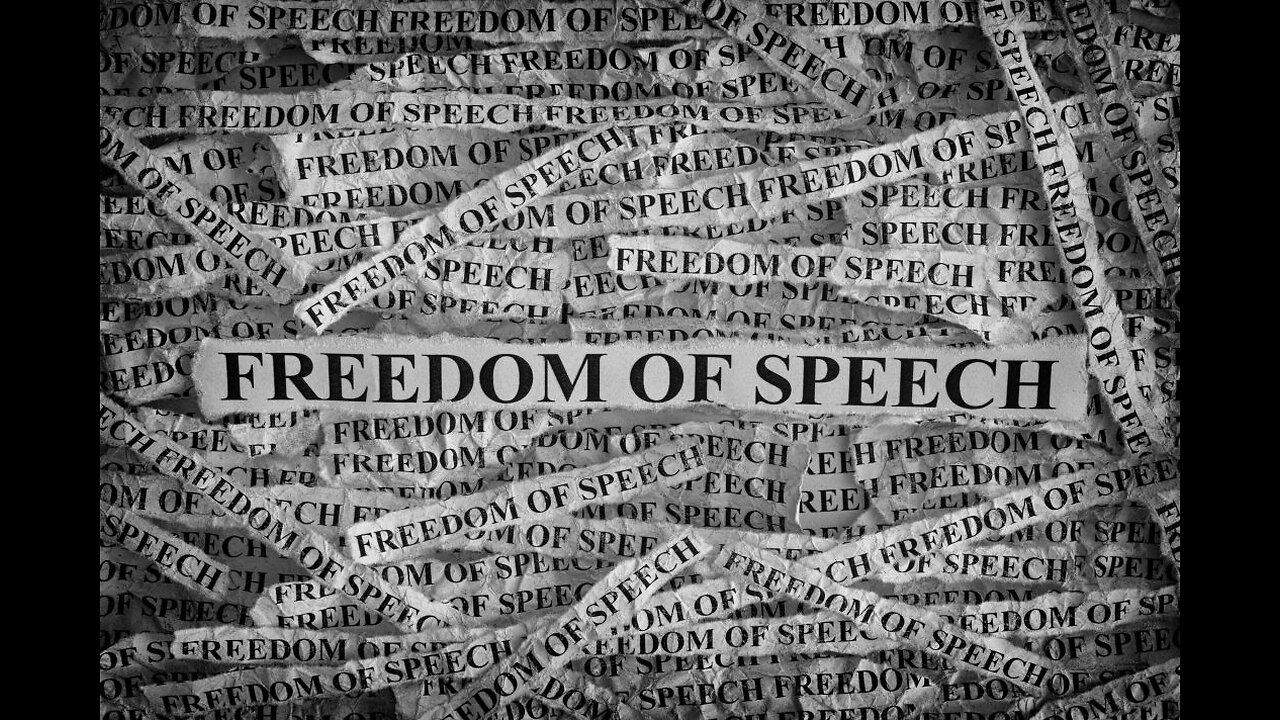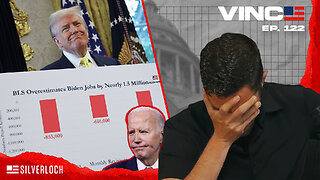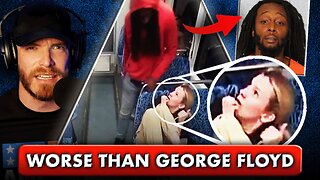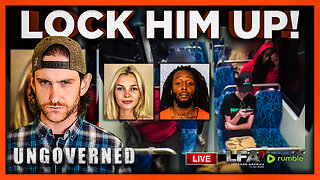Premium Only Content

The Biggest Free Speech Legal Victories Of 2023
Courts across the country, including the Supreme Court, struck down a number of First Amendment violations this year. Judges rejected efforts to compel speech, clarified that states cannot regulate speech based on content and protected the right to express unpopular beliefs.
Striking Down New York’s ‘Hateful Conduct’ Law
A federal judge halted enforcement in February of New York’s online hate speech law, which requires social media companies to maintain mechanisms for reporting hateful conduct on their platforms. The Foundation for Individual Rights and Expression sued last year on behalf of Eugene Volokh, as well as online platforms Rumble and Locals. The First Amendment protects from state regulation speech that may be deemed hateful and generally disfavors regulation of speech based on its content unless it is narrowly tailored to serve a compelling governmental interest, Judge Andrew L. Carter Jr., an Obama appointee, ruled. The Hateful Conduct Law both compels social media networks to speak about the contours of hate speech and chills the constitutionally protected speech of social media users, without articulating a compelling governmental interest or ensuring that the law is narrowly tailored to that goal. New York appealed the ruling to the Second Circuit, which will likely hear oral arguments in early 2024.
Affirming The Freedom To ‘Speak Consistent’ With Your Convictions
The Supreme Court sided with Christian web designer Lorie Smith in June, finding that Colorado’s Anti-Discrimination Act (CADA), which prevents public accommodations from restricting services based on sexual orientation, cannot compel her to create custom wedding websites for same-sex couples in violation of her religious beliefs. The First Amendment envisions the United States as a rich and complex place where all persons are free to think and speak as they wish, not as the government demands, Justice Neil Gorsuch wrote in the majority opinion.
Blocking Biden Administration From Partnering With Big Tech To Censor
A case the Supreme Court has now agreed to hear, Murthy v. Missouri, made waves this year after a federal district judge issued an injunction in July barring the Biden administration from coordinating with social media companies for the purposes of censoring speech. District of Louisiana Judge Terry A. Doughty called the federal government’s efforts Orwellian and said the plaintiffs produced evidence that they were victims of a far-reaching and widespread censorship campaign.
God Bless The Homeless Vets
The City of Port Wentworth, Georgia, entered into a settlement in November with Jeff Gray, who was arrested after he stood in front of city hall with a sign that said God Bless the Homeless Vets and refused to leave at an officer’s request. The city donated $1,791 — representing the year of the First Amendment’s ratification — to the National Coalition for Homeless Veterans as part of the settlement.
Chalking Unequal Enforcement Up To Censorship
During the same period in the summer of 2020 when Black Lives Matter protesters in Washington, D.C., were covering public spaces with paint and chalk, the city arrested two pro-life activists who chalked the words Black Pre-Born Lives Matter on a public sidewalk outside of a Planned Parenthood facility. The D.C. Circuit Court of Appeals found in August that a lower court had wrongfully dismissed their lawsuit, which accused the city of violating their First Amendment rights.
The government may not enforce the laws in a manner that picks winners and losers in public debates, it would undermine the First Amendment’s protections for free speech if the government could enact a content-neutral law and then discriminate against disfavored viewpoints under the cover of prosecutorial discretion.
-
 21:46
21:46
Movies, Videos, News and More
2 months agoMuslims Spat In Soldiers’ Faces! – Tommy Robinson BLASTS UK
111 -
 LIVE
LIVE
VINCE
1 hour agoBiden Jobs Reports Were Found Fake, AGAIN | Episode 122 - 09/10/25
35,314 watching -

Dear America
2 hours agoThis Was Worse Than George Floyd! A Line Has Been Crossed! This Is War!
77.7K78 -
 LIVE
LIVE
LadyDesireeMusic
1 hour agoLive Piano Request | Change the Culture & Support the Arts
145 watching -
 LIVE
LIVE
Badlands Media
6 hours agoBadlands Daily Sept. 10
3,502 watching -
 LIVE
LIVE
Viss
1 hour ago🔴LIVE - Sniping Our Way To Victory! - PUBG 101
129 watching -
 LIVE
LIVE
Matt Kohrs
11 hours agoNew Market Highs!!! (ORCL, PLTR, & TSLA & More) || Live Trading Futures & Options
555 watching -
 40:37
40:37
Members Club
1 hour agoTrump Cheers, Omar Spends, and the Pentagon Rebrands | MC09
3.88K1 -
 LIVE
LIVE
Wendy Bell Radio
5 hours agoENDING THE CAPTURE
7,348 watching -
 LIVE
LIVE
LFA TV
4 hours agoLFA TV ALL DAY STREAM - WEDNESDAY 9/10/25
4,634 watching